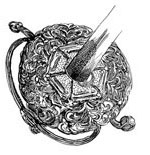
Are We Living in the Last Days?
A TIME OF TESTING
“See that you are not alarmed; for this must take place, but the end is not yet.” — Matthew 24:6
It is perhaps jejune to say that Our Lord believed in the future of the human race. He looked forward to the coming of the Holy Spirit, whose presence, purchased by His death, would form the Kingdom of the New Covenant foretold by the Prophets (cf. Jer. 31:31-34; Ezek. 37:24-28). Christ gave His disciples the sacrament of His body and blood, with the assurance that He would celebrate it with them in the Kingdom, in the future, after His sacrifice (cf. Mt. 26:29). The coming age would be an age of spiritual fulfillment, the first fruits of the coming of the Kingdom with power, the anticipation of the New Creation, in which man and nature would enjoy the fruition for which they were intended in the beginning. Jesus commissioned the Twelve to constitute the apostolic mission that would take His Gospel to the farthest parts of the earth (cf. Mt. 28:16-20), sending them into the world with the authority of God (cf. Jn. 20:21). He promised those who believe that when the Father decrees that history should be wound up, He would return to take His elect to Himself (cf. Mt. 25:31-46; Jn. 14:3; 1 Thess. 4:14) so that they might live with Him forever.
With these gifts and His promise, the faith Jesus taught by His words and actions, established in sacramental power, encompassed the earth. But Christianity has suffered from its successes. Where practiced, it does gentle the culture. Its revealed wisdom stabilizes law. Its morality enriches society. René Chateaubriand, writing in The Genius of Christianity (1802), was right: The Church is the mother of art and poetry. But his thesis encouraged the romantic view of the Middle Ages that resonated even with Protestants such as Walter Scott, who wrote as though there had indeed been a golden age of faith, an image accepted by the Christian imagination as normative and ideal, and which might be attained again. Even as Western culture became less observant, it remained, in Flannery O’Connor’s words, “Christ haunted.” As historian Tom Holland wrote in Dominion: How the Christian Revolution Remade the World (2019), and as others have pointed out, even the pseudo-virtues of Christianity’s bitter enemies are the ginned-down results of Christian profession.
The penetration of Western culture by the half-conscious presuppositions of Christian faith has served to obscure the true character of the times through which the Church has lived by encouraging a false triumphalism, the belief that time is on the side of the Christian mission in a sociological and historical sense. For Protestants this manifests in the desire to win a million souls in a single year, for Catholics in growth in numbers (until 1968) and the multiplication of religious orders. All this encourages the belief, perhaps fathered by the rise of Hegelianism, that the historical triumph of the Church is somehow inevitable. There is the popular military analogy, “From victory unto victory his armies shall he lead, til every foe is vanquished” (George Duffield, 1856), and the expectation of universal success, “Lift high the cross, the love of Christ proclaim, till all the world adore his holy name” (G.W. Kitchin, 1888). Innocently hopeful, yes, but background for a note of demonic disappointment when what happens does not conform to expectations, for the self-accusation of the Church that she has not been more successful, for the abandonment of truth as ineffective in favor of hopeful novelty that promises historical success.
You May Also Enjoy
The presiding bishop and primate of the Episcopal Church has difficulty distinguishing the work of the Lord from that of the spirits of deception.
Justice is an essential ingredient of love; love is not complete unless — to switch the metaphor — it is built on a foundation for social justice.
Predictive Scripture differs from the odd example of human prescience in that it tells us the eternal significance of events to which it alludes.

